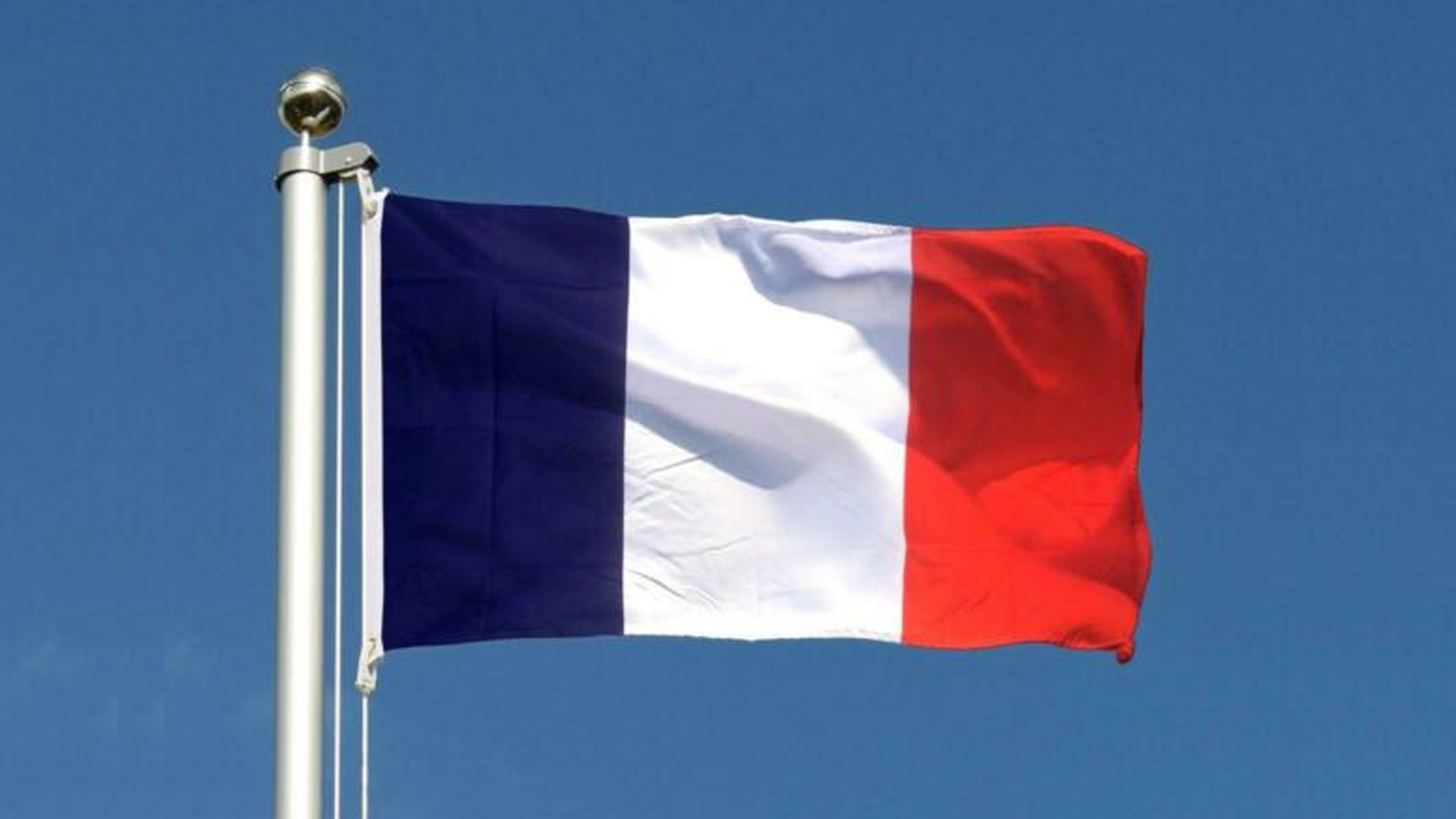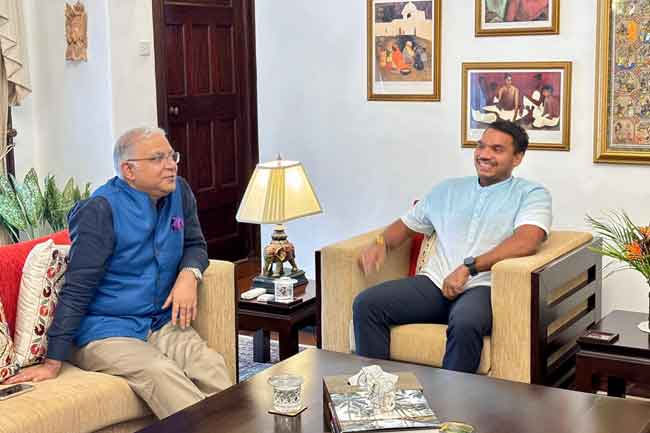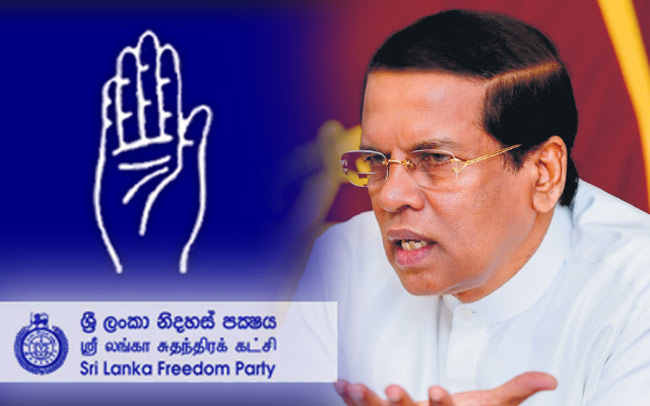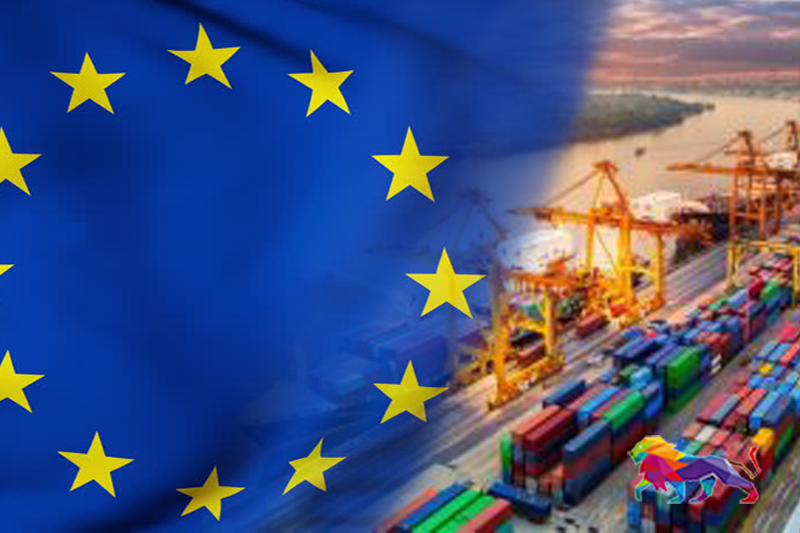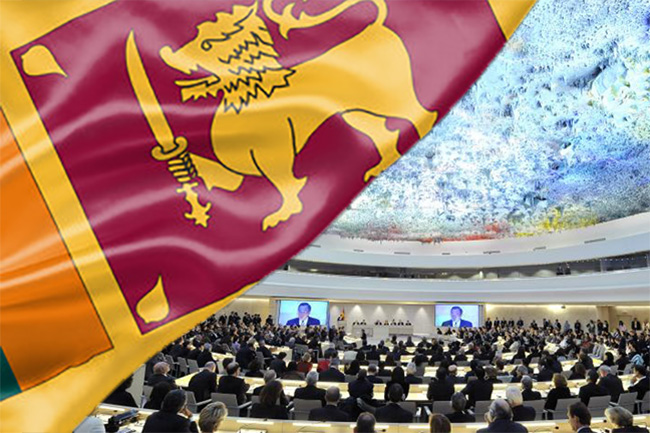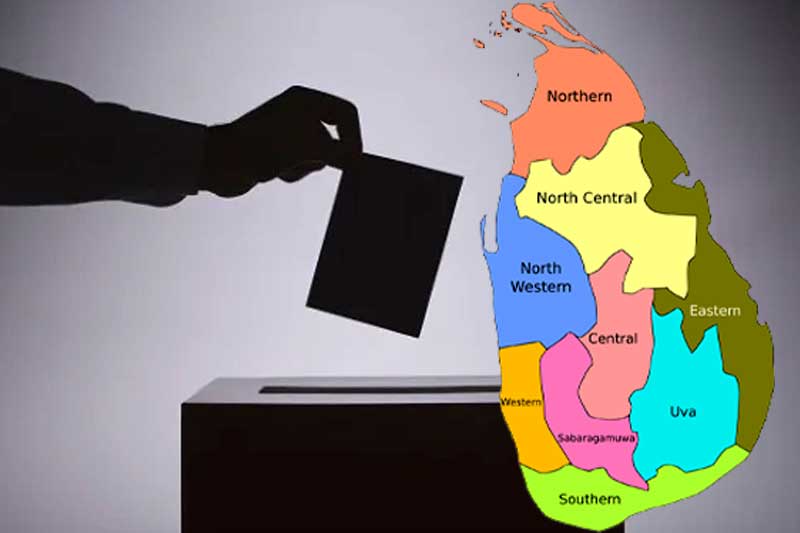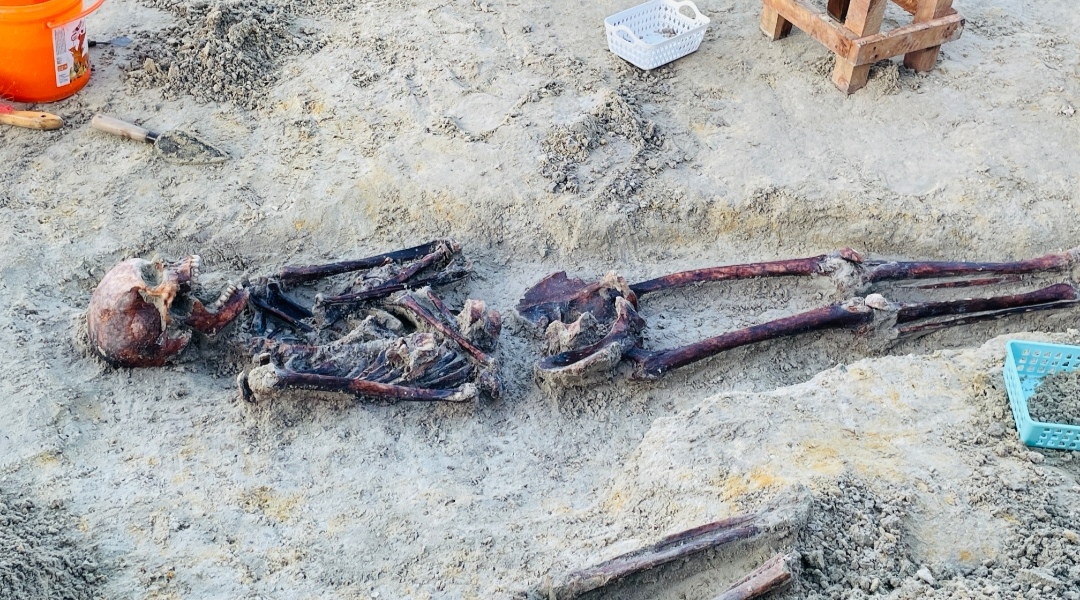In August, the Human Rights Commission of Sri Lanka (HRCSL) conducted a fact-finding mission at the Chemmani mass gravesite in Jaffna, which has thus far contained over 200 human remains, alongside significant systemic challenges in the investigation process.
The investigation unearths not only remains but also entrenched obstacles to delivering justice for alleged extrajudicial killings, highlighting the urgent need for institutional reforms and international collaboration.
Investigation process
The Chemmani site first emerged as a site of national and international attention in the late 1990s following revelations tied to wartime atrocities during Sri Lanka’s violent civil conflict. In 1996, after the brutal rape and murder of Tamil schoolgirl Krishanthi Kumaraswamy by soldiers, a Sri Lanka Army corporal revealed mass graves in the Chemmani area.
However, meaningful investigations stalled for decades until renewed excavations began in early 2025.
As of August this year, over 200 skeletal remains had been uncovered at Chemmani during the ongoing investigation led by the Jaffna Magistrate’s Court in coordination with archaeological experts, forensic medical officers with anthropological specialisations, and the Criminal Investigation Department (CID). Office on Missing Persons (OMP) observers also oversee proceedings.
OMP Commissioner Mirak Raheem commented on the unique complexity of mass grave investigations: “Mass graves tend to be obviously a lot more complicated than your normal crime scenes. The big challenge is that it’s not just about scaling up a normal kind of crime scene investigation by just adding individuals. It’s also about the fact that you need to use a multidisciplinary team to investigate it from the outset.”
Raheem highlighted the multidisciplinary approach at Chemmani, which involves a rotation of Judicial Medical Officers (JMOs) with anthropologic expertise led by Consultant Judicial Medical Officer Dr. Selliah Pranavan alongside archaeological teams including Professor Raj Somadeva and students from the University of Jaffna assisting in medico-legal and archaeological work.
“Given the size of this site, many hands are necessary on deck to assist in the case. This also provides exposure to students who want to enter fields like forensic archaeology and forensic anthropology,” he stressed.
Beyond excavation, parallel investigations explore the history of the site and the circumstances surrounding the burials. The site’s over 20-30 feet of strata require multifaceted sampling both horizontally and vertically to confirm whether bodies relate to a single incident or multiple events spread over time.
“One cannot assume that all bodies found in one site relate to the same event. The lack of public information is a key issue but a significant amount of documentation from previous commissions must be assessed and analysed to help substantiate findings,” noted Raheem.
Forensic challenges
A critical challenge underscored by both the HRCSL report and experts is the limited pool of qualified forensic anthropologists and archaeologists, alongside severe deficits in advanced technological capacity.
The State currently lacks domestic facilities for detailed carbon dating, forcing reliance on foreign laboratories such as one in Florida, which in 2018 dated skeletons in Mannar to approximately 450-550 years ago – a finding that faced contestation from local scholars, particularly, Prof. Somadeva.
“Two commissioners visited the site in Chemmani, and they observed that there weren’t enough resources to be satisfactory for the level of excavation and investigation required. For example, there are only two JMOs. The number of staff is also inadequate.
“We also don’t have the necessary expertise and equipment for carbon dating. So, the Government must ensure that the necessary funds and resources are provided in addition to obtaining international expertise,” said HRCSL Commissioner Nimal Punchihewa.
Retired Government Analyst Ariananda Welianga highlighted the technical divide: “Sri Lanka is competent in DNA testing and has the necessary expertise and tools. However, when it comes to carbon dating, we lack the technology.”
Supporting this, Government judicial medical sources revealed: “For carbon dating, we can’t do that. The usual practice is, we send the material to a Florida-based lab that does the carbon dating analysis for us.”
Operational realities
Aside from expertise gaps, funding and administrative procedures impose further constraints. Recent misinformation suggested delays in excavation due to funding shortages, but this is refuted by investigation officials.
“Funding is based on the budget provided by the JMO, who is scheduled to submit the budget for the third phase by 18 September. Until the budget is submitted, no further funds can be released.
“The team generally works in 15-day blocks without taking weekends off, but some members also work on other sites during rest periods. This planning ensures continuous work during active periods and rest or reassignment afterwards. The team has not been working non-stop since the excavation began,” Raheem clarified.
Justice Minister’s assurances
“The court orders determine the stages of the work, which are progressing well. If additional expertise is required, it will be brought in. Currently, Chemmani is moving quite well. Regarding the budget, there were questions, but it has been confirmed that funding is sufficient and is being released progressively.
“Excavations are conducted in stages as advised by experts and multidisciplinary teams who determine when each phase should proceed. Judges then approve the stages and funding is released accordingly,” said Justice Minister Harshana Nanayakkara.
According to him, the Government consults international partners such as the United Nations (UN) and the International Committee of the Red Cross (ICRC) for scientific and technical support when needed.
“The Government is already obtaining foreign expertise as needed. When the technology or facilities are lacking, it consults with the UN and the ICRC for assistance. As long as the work can be done domestically, it is handled internally; however, scientific and technical help is sought when necessary.”
Justice Minister Nanayakkara acknowledged steps underway to establish an independent prosecutorial office: “Right now we are working on the Independent Prosecutor’s Office. That independent office is on the cards and the committee is meeting to come up with a way to have a directorate of public prosecutions, an independent body. Whether that will serve the need, we can see.”
An example in South and Southeast Asia where foreign expertise was sought for mass grave investigations is Cambodia. After the Khmer Rouge regime, which caused millions of deaths, Cambodia undertook forensic investigations with international assistance.
Beginning in 2001, a team of Cambodian and international researchers and forensic experts collaborated on identifying and excavating gravesites such as Choeung Ek. This project had phases including feasibility studies, site identification, and scientific excavations, backed by international funding and expertise to support trials at the Extraordinary Chambers in the Courts of Cambodia (ECCC).
Law enforcement and media freedom
The HRCSL report raises grave concerns over law enforcement conduct, citing intimidation tactics targeting witnesses and families by CID officers. Additionally, the involvement of the military and regular Police forces in investigations has triggered fears of bias, undue influence, and obstruction of justice.
The summoning of an independent journalist covering the investigation by the Counter-Terrorism and Investigation Division (CTID) sparked broader concerns about press freedom and suppression of independent reporting.
In response to these issues, the HRCSL’s recommendations to the Inspector General of Police include directing CID officers to cease intimidation and antagonistic questioning and ensuring the CTID complies with Police circulars requiring notification to individuals summoned, with particular sensitivity towards journalists.
However, the Ministry of Public Security has defended the decision to deploy Police personnel from posts close to the gravesite in rotation, stressing that the officers involved cannot influence the ongoing investigations.
Voices from the ground
Local communities and families of the disappeared express deep scepticism about the domestic investigation’s independence and transparency.
Kumanan Kanapathipillai, a photojournalist covering the excavation, revealed that those directly affected – the families of the missing and the disappeared – have cast serious doubts over the impartiality of the probe.
“Families of missing persons and disappeared are calling for international support and forensic experts. The families continuously say that they don’t believe in the domestic investigation because they don’t trust it will be independent and transparent due to the involvement of the state. The JMO is under the Ministry of Health which is in turn under the Government, so they believe that the support of international experts would help give credibility.”
Accountability and healing
The Chemmani mass grave investigation is not only a forensic exercise but a litmus test for Sri Lanka’s commitment to truth, justice, and reconciliation after decades of conflict marked by enforced disappearances and extrajudicial killings.
The HRCSL’s report lays bare the intertwined challenges of capacity shortfalls, funding constraints, political interference, and human rights concerns that cloud the path to accountability.
Raheem emphasised the importance of international collaboration, noting: “There is much to be shared by international experts with Sri Lankan forensic experts and investigators to advance the work.”
The demands from families and civil society for independent, transparent investigations supported by international expertise embody a broader call to break cycles of impunity and denial.
Sri Lanka’s ability to leverage this moment in Chemmani – by building institutional capacity, respecting human rights standards, and ensuring independent oversight – will determine whether the echoes of the past truly lead to justice for victims and their families or merely deepen wounds that remain unhealed.
HRCSL recommendations
Highlighting systemic weaknesses, the Human Rights Commission of Sri Lanka (HRCSL) makes crucial recommendations to various State actors to address current failings and ensure credible justice:
To the Minister of Justice:
Develop and implement a Standard Operating Procedure (SOP) for mass grave investigations.
Appoint a focal point to expedite budget approvals and resource allocation.
Expand the use of Ground-Penetrating Radar (GPR) for comprehensive site scanning.
Build local archaeological expertise and secure overseas technical support for DNA and carbon dating.
Establish a DNA bank to aid family identification.
Support continuity of magistrate leadership overseeing the investigation.
Create an independent, permanent office tasked with investigating and prosecuting serious State crimes.
To the Inspector General of Police:
Stop CID intimidation of witnesses and victims’ relatives.
Enforce CTID compliance with notification protocols, especially regarding media personnel.
To the Minister of Defence and Army Commander:
Bar Army personnel from involvement or interference in investigations and contact with investigators, families, or civil society.
To the Minister of Higher Education:
Review and strengthen forensic anthropology training to increase expertise.
Promote forensic archaeology as an academic discipline.
To the Minister of Finance:
Facilitate VAT exemptions and Customs clearance for forensic lab equipment donated to the University of Jaffna.


